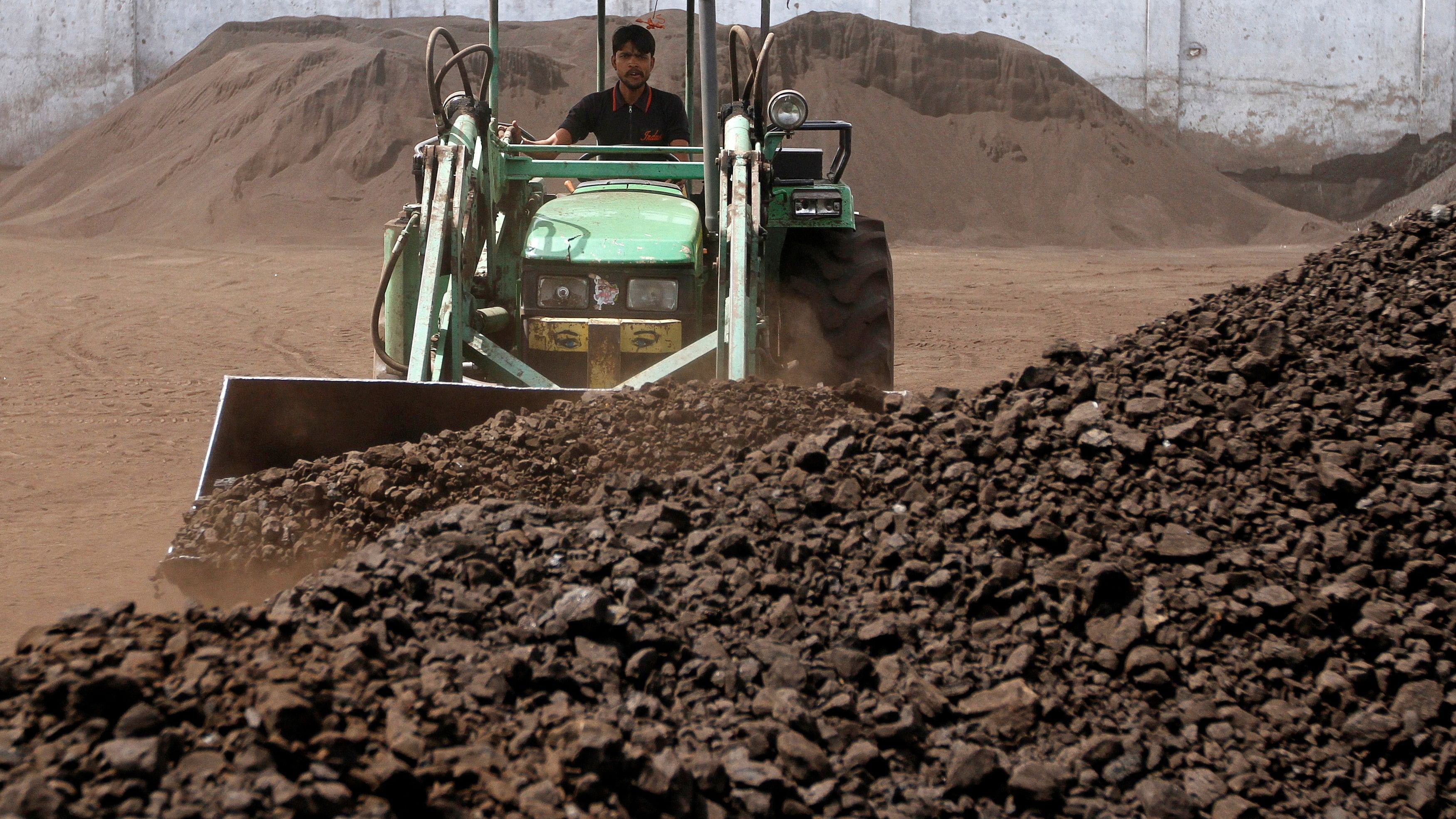
Coal representative image.
Credit: Reuters/Amit Dave
Centre has asked utilities to import 4 per cent of their coal requirement until March next year and has called a meeting to revive idling state-owned and private gas-based power utilities on Monday, letters seen by Reuters showed, as the country struggles to meet night-time power demand.
The country’s maximum power demand touched 240 gigawatt (GW) on Friday due to increased consumption on the back of hot weather conditions, an anticipated rise in industrial activity ahead of a festival season and high agricultural demand due to deficient rainfall.
India witnessed its driest August in a century, getting 36 per cent less rain than it usually does in the month.
The country's peak power shortage touched 10.7 GW on Thursday, data available with its Grid Controller showed.
India has an installed electricity generation capacity of 423 GW, of which 206 GW is based on coal and 131 GW is based on renewables. Gas-based capacity of 25 GW is largely non-operational.
"It is a non-solar hour (nighttime) shortage. Days when wind generation falls and demand is high become stressed. The gap has to be filled by thermal," a senior government official said.
India’s power ministry on Friday issued directions to all power plants to import 4 per cent of their overall coal requirement for blending with domestic coal uptil March next year to maintain stocks amid higher consumption.
“Grid India has projected continuation of elevated power demand levels throughout the current fiscal year," the letter issued to all coal-plants on Friday said. As a result "... the need has arisen to continue use of imported coal for blending purpose.”
The power ministry had in January asked utilities to import 6 per cent of their coal needs until September. The mandate is now extended until March next year at 4 per cent.
India’s power and renewable energy minister R K Singh will chair the meeting on Monday, another letter showed. The meeting aims to discuss reviving the 25 GW of gas-based capacity either idled or underutilised due to lack of fuel.
Requests for comment from the federal power ministry on Saturday were not immediately answered.
India's electricity consumption grew 16 per cent in August according to available data from the grid operator. The country has been able to meet its daytime demand with solar power.
However, a limited addition to coal-based capacity in the past decade and a lack of energy storage technologies coupled with current low generation by wind and hydro power plants has led to a challenge in meeting nighttime supply needs.